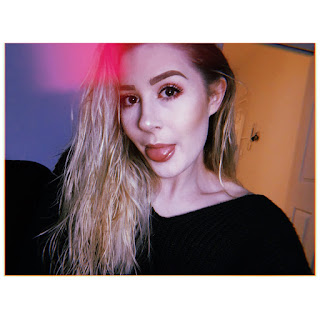My depression arrived first, leaving me feeling worthless and truly believing I was a ‘nobody’. I felt isolated and pushed all of my friends away and I was lost inside my dark mind that I had no idea I was trapped in. I honestly believed that my worth in this world didn’t exist. My impulsivity came next and I started putting myself in risky situations and not caring what would happen to me, I drank ridiculous amounts of alcohol and I thought at the times this was under control and ‘fine’. In reality all of these things untreated were making me a whole lot worse.
After a few breakdowns, suicide attempts that left my family wondering if I would wake up in the morning, a trip to a mental health hospital happened and spring forward 2 years I was FINALLY discharged last month. Leading up to my discharge I was lucky enough to work with BBC Breakfast to capture some key moments for me, talking about the stigma I have faced in my own personal life and for some many others have faced too.
For me I have had people stop me during my shift at work, point at my arm and give me dirty looks because they have noticed my self-harm scars. I have also been called attention seeking by teachers, friends and mental health professionals because they have a lack of understanding and didn’t realise that I was struggling and crying for help because my traumatic past was slowly killing me. I also find that the pressures of social media have such a big influence on our self-esteem because unfortunately if you don’t look a certain way these day then you’re not deemed ‘good enough’.
The struggle for funding to support those suffering with mental health issues in an impatient facility and funding in the community to prevent people getting worse is something I’m so passionate about changing for the better. With the BBC we also captured the moment I left that hospital for good, said my goodbyes and opened the door to my new house, my new chapter and my new life (cliché I know but why not?).
My main focus for telling my story was to show people that is does get better if you work for it and want it so bad. Recovery is 100% something that needs to be worked on every, it doesn’t have a day off which is exactly what fighting the stigma is like.
So as we all know, there is no magic wand or miracle cure to rid ourselves of mental health and all the stigma attached to it. But we can spread the awareness by not being afraid to speak out and supporting those around us.
Slowly things may start changing.



